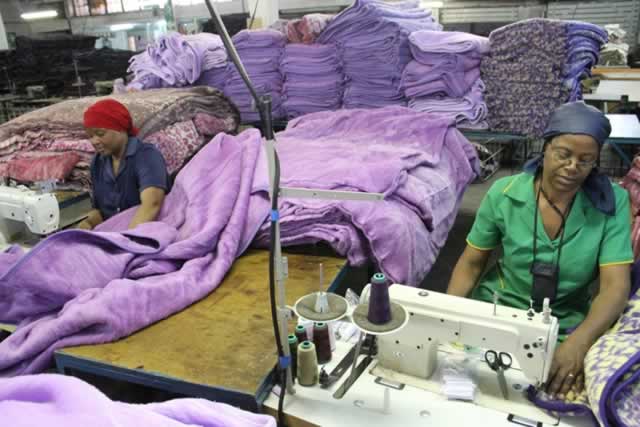
The Sunday Mail

Prince Mushawevato
NATIONAL Blankets Limited is slowly emerging out of the woods as it has managed to acquire adequate raw materials to underpin its three-month turnaround programme, an official from the company has revealed.
The blanket maker was placed under judicial management in 2012 following viability constraints.
National Blankets judicial manager Mr Phillip Ndlovu revealed in a recent interview that the company had crafted a turnaround programme that would see it return to profitability in the short term.
Mr Ndlovu said the company had invested millions of dollars in raw materials, with new products expected to be rolled onto the market by May.
Last year, the firm offloaded its property – Industrial Plot number 39 – to the National Social Security Authority.
The proceeds were used to pay off one of its creditors, Capital Bank, while the balance was channelled towards the purchase of raw materials.
National Blankets also received a US$500 000 loan facility from the Central Africa Building Society under the Distressed and Marginalised Areas Fund facility.
“At the moment we are awaiting our raw materials coming from India. Most of it will be in the country on time to meet our product dispatch target.
“We are expecting in excess of four containers at an average cost of US$250 000 each,” said Mr Ndlovu.
It is believed that the expected stock will be able to jump-start operations within a 90-day working period.
The firm’s trading position has improved in the past year, with losses being reduced to less than a million dollars from US$4 million.
Mr Ndlovu, however, noted that additional capital is still needed for the turnaround programme to be a success.
An estimated US$3 million is required to fully recapitalise operations.
The company has already invested in state-of-the-art machinery.
National Blankets replaced its obsolete equipment in 2009, but suffered a major knock soon after as it failed to repay a loan borrowed from a local financial institution for the recapitalisation exercise.
Experts say the company has the potential to churn out 60 000 blankets a month. Presently, between 15 000 and 20 000 blankets are being produced every month.
“We initially need $3 million to fully recapitalise National Blankets.
“Most of the machinery we have here can be refurbished without being replaced.
“So we actually need money for raw materials.
“But we also need money to purchase vehicles to put our product onto the market in an efficient and effective manner,” explained Mr Ndlovu.
Investors have been reluctant to commit their money to National Blankets because of the sheer size of its liabilities.
A scheme of arrangement signed between the company shareholders and creditors in 2013 has, however, paved way for fresh investments.
A scheme of arrangement is a court-approved agreement between a company and its shareholders or creditors (lenders or debenture holders), which may affect mergers and amalgamations and may alter shareholder or creditor rights.
“Existing shareholders are interested in turning around the company.
“The scheme of arrangement that we signed recently was a result of the commitment of shareholders.
“The plan (scheme of arrangement) has given National Blankets a new lease of life.
“The 90-day cycle will see the company back to serious business without fail,” added Mr Ndlovu.
The company is confident that it will be able to upstage cheap imports.
“The issue is not about the price or imports, it is because we currently cannot satisfy our market.
“The Buy Zimbabwe concept is still alive. Due to lack of raw materials, we were not visible on the market hence our customers resorted to imports,” he said.
National Blankets, which currently employs 100 workers compared to a previous 1 000, used to be the major supplier of blankets to both public and private institutions such as hospitals, clinics, schools, police and prisons in the country.
Statistics from the Confederation of Zimbabwe Industries show that more than 10 big companies in the textiles and clothing industry in Bulawayo, namely: Archers, True Value, Label Fashion, Suntosha Leisure Wear, Luncaster, Harren Manufacturing, Ascot, Belmor Fashions, Cinderella and Rusglen Fashions have closed shop in the last few years.




